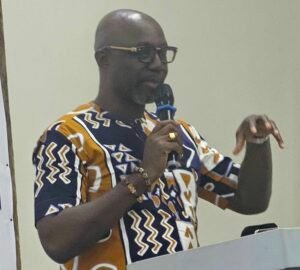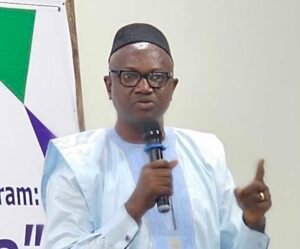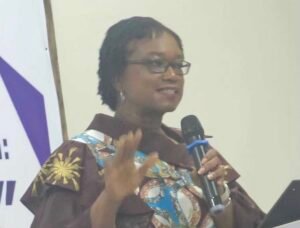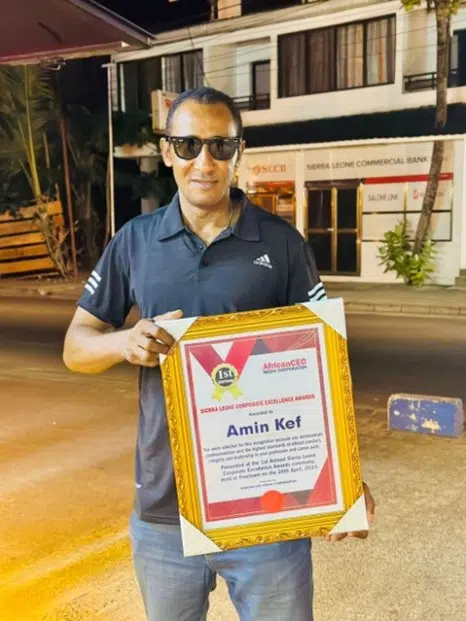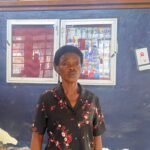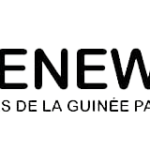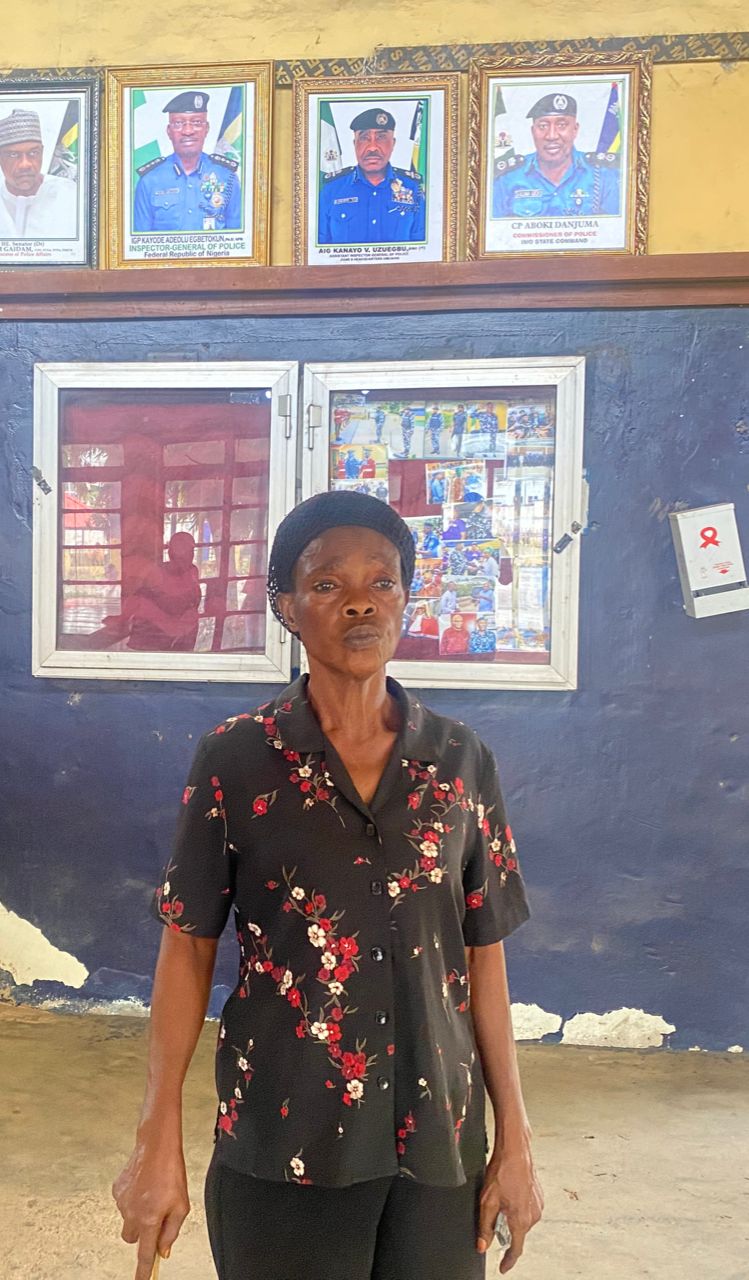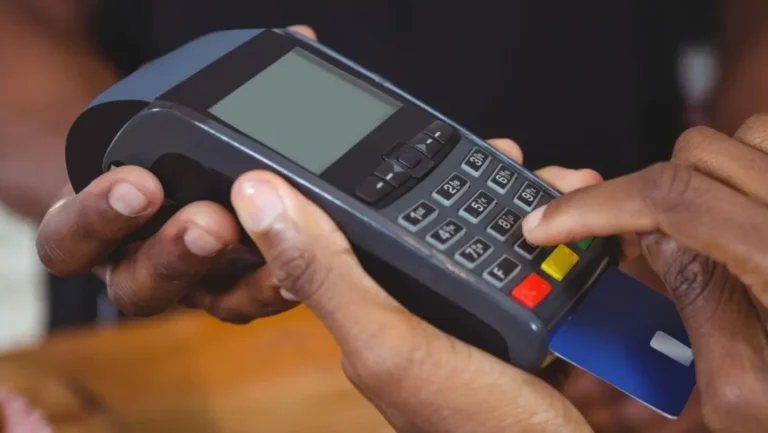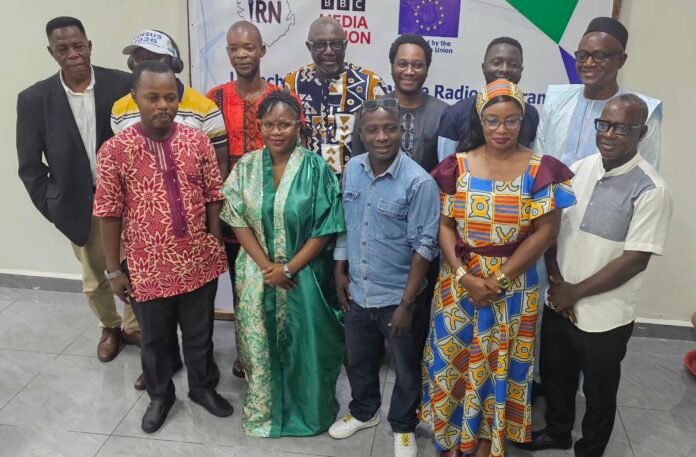
By Alvin Lansana Kargbo
The Independent Radio Network (IRN) on Friday, 31st November 2025, launched its new governance radio program titled: “Pipul en Pawa” at the New Brookfields Hotel in Freetown. The program forms part of a wider European Union–funded media development initiative implemented by a consortium of international and national partners led by BBC Media Action Sierra Leone.
According to Edward Kargbo, Country Director of BBC Media Action Sierra Leone, the project aims to strengthen community media, enhance the independence of the national broadcaster and promote press freedom in Sierra Leone. The consortium includes the International Federation of Journalists (IFJ), the World Association of News Publishers (WAN-IFRA) and local partners such as the Media Reform Coordinating Group (MRCG) and the Sierra Leone Association of Journalists (SLAJ).
He said the initiative builds on previous efforts to improve the media landscape in Sierra Leone in line with the country’s National Action Plan, emphasizing community media viability and the autonomy of SLBC. He noted that while BBC Media Action serves as lead agency ensuring project coordination and compliance, each partner plays a distinct role; IRN leads on program design and community media grants, MRCG advances SLBC reforms and SLAJ strengthens institutional capacity and defends media freedom.
He added that the project prioritizes gender inclusion by providing women journalists with technical training and leadership development as well as promoting digital literacy among young journalists through internships and mentorship. Overall, he said, the goal is to build a resilient, independent and inclusive media ecosystem capable of fostering accountability and citizen engagement.
IRN National Coordinator, Ransford S.C. Wright, said the network was moving “from planning into action” with the rollout of Pipul en Pawa, which will air across IRN’s member stations nationwide. The program will broadcast from 7–8 p.m. on Mondays, with additional time slots across districts, supported by online streaming and podcast platforms. Ransford Wright revealed that 12 member stations were formally engaged after a rigorous selection process, while others voluntarily committed to broadcast the program at no cost.
He stated that Pipul en Pawa seeks to connect citizens with power by creating space for both public voices and leadership perspectives. Ransford Wright highlighted that the program reflects IRN’s strategy to produce governance-focused content that strengthens democratic participation. He described the launch as a milestone in IRN’s evolution into a multimedia hub, while reaffirming radio’s enduring relevance as Sierra Leone’s most trusted and accessible medium.
The IRN National Coordinator emphasized that the program will include women, youth and persons with disabilities to ensure representation and inclusivity. He thanked BBC Media Action and the European Union for their partnership, describing the initiative as “a platform for citizen engagement and accountability.”
Umaru Fofana said he was pleased that the show was ready to air, confirming that five episodes had been completed before launch. He noted that the production team aimed to set new standards for quality journalism by combining accurate reporting with engaging storytelling.
He also explained that Pipul en Pawa was designed to demonstrate that governance goes beyond elections adding that many national challenges arise between elections and such issues require continuous public dialogue and scrutiny. Umaru Fofana cautioned that social media alone cannot bridge the country’s information gaps, stressing that the program would focus on verified, fact-based reporting to counter misinformation.
He revealed that each episode will feature the voices of ordinary citizens alongside decision-makers and hinted at plans for community town halls to create direct dialogue between leaders and the public. “Radio remains the most accessible medium in Sierra Leone,” he said, adding that the program’s blend of radio and digital platforms would expand reach and impact.
IRN Board Chairman, Andrew Kromah, described Pipul en Pawa as the embodiment of IRN’s mission to give voice to the people. He said the initiative comes at a time when citizens are demanding greater accountability and participation in national governance. He recalled IRN’s evolution from election coverage to broader civic engagement, highlighting its role during the Ebola and COVID-19 crises.
Andrew Kromah reaffirmed IRN’s commitment to delivering credible, inclusive content to all regions of Sierra Leone and commended BBC Media Action and the European Union for their support. He urged producers to keep the stories “real and relatable,” ensuring that the program truly reflects the lives and concerns of ordinary citizens.
Dr. Fredline M’Cormack-Hale, President of the 50/50 Group, officially launched the program, describing Pipul en Pawa as a timely initiative that reminds citizens that real power lies with them. She underscored the importance of radio as Sierra Leone’s most influential medium, noting that while two-thirds of citizens access radio regularly, a gender gap persists in listenership.
The 50/50 Group President cited data showing that 69% of Sierra Leoneans believe the media should investigate and report on Government mistakes and corruption, arguing that the program directly aligns with public demand for accountability and transparency. Dr. Fredline M’Cormack-Hale emphasized that governance should be participatory and inclusive encouraging citizens to critically engage with Government and opposition promises alike.
She concluded that Pipul en Pawa represents a vital bridge between citizens and the state, combining investigative journalism, digital storytelling and public dialogue to strengthen democracy in Sierra Leone.
The Pipul en Pawa program will begin airing in the first week of November across IRN’s nationwide network, offering citizens a new platform to express their views, question leaders and participate in shaping national governance.
